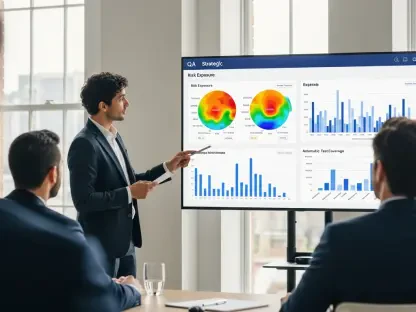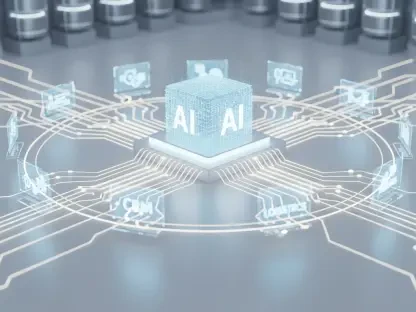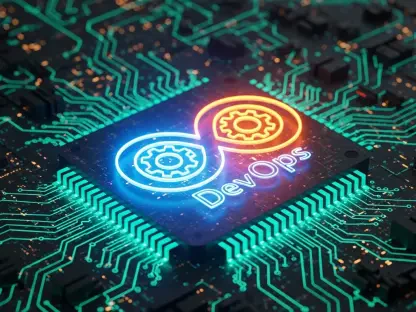As we navigate through the digital age, the necessity of proficient coding skills continues to grow exponentially, and by 2025, this trend is expected to escalate further. Technology will advance even more, and programming languages will play a crucial role in driving innovation, productivity, and problem-solving across all sectors. Learning programming languages will not just be the preserve of aspiring software developers but will be essential for anyone aiming to stay relevant and competitive in the workforce. The benefits of learning programming languages in 2025 are extensive, reaching far beyond traditional tech industries, impacting career opportunities, problem-solving abilities, interactions with emerging technologies, creativity, digital literacy, and career longevity.
Boosting Career Opportunities
One of the most pronounced benefits of learning programming languages lies in enhanced career prospects. The demand for tech professionals—including software developers, data scientists, and machine learning engineers—has been on an upward trajectory and is expected to continue rising. Projections indicate that the employment of software developers will grow by 22% from 2020 to 2030, considerably outpacing the growth rate of other occupations. By 2025, a diverse range of industries such as healthcare, finance, and education will require employees with technical expertise to manage and analyze data, automate processes, and develop applications.
Moreover, learning programming enables professionals, regardless of their core domain—be it marketing, entrepreneurship, or financial analysis—to create customized solutions and add significant value to their roles. For instance, a marketing professional with coding skills can automate repetitive tasks, analyze marketing data more effectively, and create targeted campaigns based on data insights. This cross-disciplinary advantage provides a competitive edge in the job market, offering greater job security and higher earning potentials.
Improved Problem-Solving and Critical Thinking
Programming fundamentally revolves around solving problems using logic and structured thinking. Writing code fosters analytical thinking and problem-solving skills, which extend beyond software development into various walks of life. By 2025, as automation and artificial intelligence (AI) manage more routine tasks, the capacity to think critically and navigate complex problems will become increasingly valuable. People with coding skills will find themselves better prepared to tackle unique challenges that machines cannot easily resolve.
Additionally, programming teaches decomposition, where large tasks are dissected into smaller, manageable segments, enhancing one’s ability to handle intricate challenges methodically. This technique not only aids in software development but also improves overall cognitive functioning, leading to better decision-making and strategic planning. It cultivates skills in hypothesis testing, troubleshooting, and iterative solution development, making these problem-solving strategies versatile and applicable across diverse disciplines. This adaptability will be crucial as industries evolve and new challenges emerge.
Access to Emerging Technologies
Programming languages act as gateways to engaging with cutting-edge technologies like AI, machine learning, the Internet of Things (IoT), blockchain, and quantum computing. By 2025, these technologies will continuously reshape industries such as healthcare, finance, logistics, and cybersecurity. For example, AI and machine learning are revolutionizing personalized medicine, predictive analytics, and autonomous vehicles. Professionals with coding skills will be at the forefront of these revolutionary changes, creating new applications and enhancing existing systems.
Furthermore, learning programming languages like Python, R, or JavaScript, which are integral to AI development, positions learners to capitalize on these advancements. Blockchain technology, initially known for cryptocurrencies, is being leveraged in areas like supply chain management, digital identity verification, and secure financial transactions. Proficiency in blockchain programming, especially on platforms like Ethereum, will make individuals highly sought-after within these emerging contexts. This opens vast opportunities for career growth and innovation in a tech-driven future.
Enhancing Creativity and Innovation
Programming empowers individuals to create and innovate in ways previously restricted to specialized professionals. By 2025, tools for software creation will become more accessible and user-friendly, enabling those with fundamental coding knowledge to develop applications, websites, and AI-powered tools. For example, those in the entertainment industry can build interactive experiences, such as video games and virtual reality environments, while entrepreneurs can develop unique software solutions catering to specific market needs. The ability to turn creative ideas into functional products provides a significant competitive edge.
Low-code and no-code platforms have democratized the process of software development, allowing non-developers to create functional applications easily. However, a robust understanding of programming principles enables individuals to push the creative boundaries of their projects, permitting greater customization and sophistication. This deeper knowledge ensures that innovations are not just surface-level, but are built with a strong foundation, leading to more durable and impactful solutions.
Improving Digital Literacy
In 2025, digital literacy will go beyond the ability to use common software tools and will include a deeper understanding of how everyday technologies function. Learning programming languages is pivotal in enhancing one’s digital literacy, providing insights into the algorithms, data structures, and operational systems shaping the digital landscape. This comprehensive digital literacy enables individuals to interact more effectively with technology, understanding its potential and limitations.
Individuals with high digital literacy are better positioned to identify and seize new opportunities in the workplace, adapting swiftly to technological changes and innovations. This adaptability is essential in a world where technology evolves rapidly, often outpacing traditional skill sets. Enhanced digital literacy also fosters a more informed and critical approach to digital consumption and creation, making individuals more responsible users and innovators.
Future-Proofing Your Career
As automation replaces repetitive tasks, individuals equipped with advanced programming skills will find themselves better positioned to future-proof their careers. By 2025, many roles will demand a fusion of technical and human-centric skills such as creativity, empathy, and advanced problem solving. Learning to code prepares individuals not only for the future of work but also for roles that are less susceptible to being automated. This dual capability ensures long-term career viability in an uncertain job market.
Positions in AI development, cybersecurity, and cloud computing will be particularly in demand, heavily relying on programming skills. Developing algorithms for predictive analytics, securing networks from cyber threats, and managing cloud infrastructures are just a few examples of how programming knowledge will remain indispensable for building resilient, long-term careers. Those who can integrate coding with other competencies will be the architects of tomorrow’s digital landscape.
Conclusion
As we progress through the digital age, the need for strong coding skills is growing rapidly, and this trend is expected to intensify by 2025. Technological advancements will continue to accelerate, making programming languages a critical component in spearheading innovation, boosting productivity, and solving problems across various sectors. Acquiring programming skills will no longer be limited to aspiring software developers; it will be crucial for anyone looking to remain relevant and competitive in the job market. The advantages of learning programming in 2025 are vast, extending well beyond traditional tech industries. These skills will enhance career prospects, improve problem-solving abilities, enable effective interaction with emerging technologies, foster creativity, boost digital literacy, and ensure career longevity. Emphasizing the importance of coding in future job markets underscores its role in not just professional growth, but also in adapting to and thriving in an increasingly digital world.









